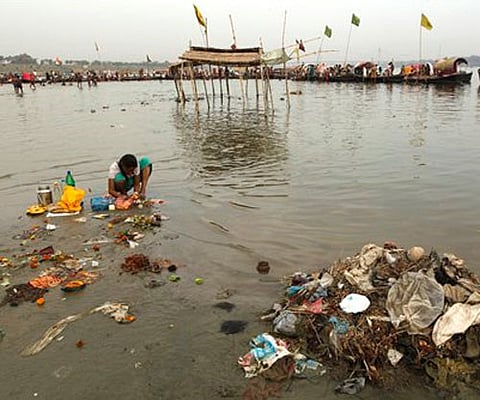Rising temperatures linked to decline in water recharge in major river basins: Study
NEW DELHI: Rising temperatures worldwide is expected to adversely affect the global water cycle in major river basins, including the Ganga and Brahmaputra, claims a new study.
The analysis also revealed reduction in water recharge, pointing to a clear association with diminished vegetation growth in the river basins.
Researchers from India’s IISc and Australia’s University of New South Wales used satellite- derived estimates of total annual recharge to investigate the effect of rise in temperature for areas drained by 31 major rivers around the world.
These include the Amazon, Ganga, Brahmaputra, Indus, Nile, Tigris-Euphrates, Mekong and Mississippi, alongside which most of the global population resides.
The areas drained by 23 out of these 31 rivers showed reduced recharge with increase in temperature.
Vegetation growth in these areas also reduced, owing to decline in the annual water recharge. Given that this is a result of just 0.9°C rise in global temperature, the impact of the 3.5°C rise by the end of this century that is expected is a major concern, researchers fear.
The study, based on Gravity Recovery and Climate Experiment (GRACE) satellite observations, are first of their kind and in line with future projections from mathematical models.
In a future warmer climate, even an unchanged precipitation would lead to diminished recharge than expected, with reductions in precipitation expected to exacerbate it further, the study says.
Subsequently, availability of water is expected to be reduced in many parts of the world just due to rising global temperatures.
These changes could threaten the water and food security of human beings as well as the flora and fauna around us, jeopardising human life and ecosystems alike, it noted.

